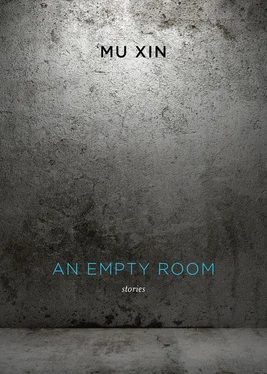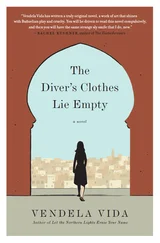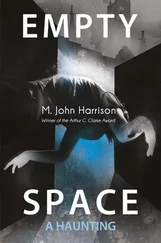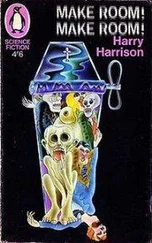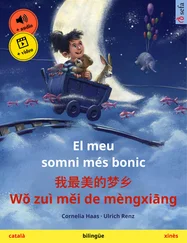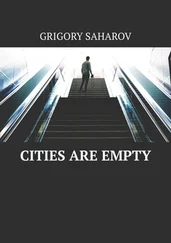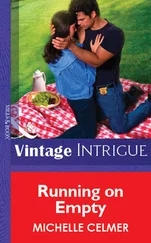Mu Xin - An Empty Room
Здесь есть возможность читать онлайн «Mu Xin - An Empty Room» весь текст электронной книги совершенно бесплатно (целиком полную версию без сокращений). В некоторых случаях можно слушать аудио, скачать через торрент в формате fb2 и присутствует краткое содержание. Год выпуска: 2011, Издательство: New Directions, Жанр: Современная проза, на английском языке. Описание произведения, (предисловие) а так же отзывы посетителей доступны на портале библиотеки ЛибКат.
- Название:An Empty Room
- Автор:
- Издательство:New Directions
- Жанр:
- Год:2011
- ISBN:нет данных
- Рейтинг книги:3 / 5. Голосов: 1
-
Избранное:Добавить в избранное
- Отзывы:
-
Ваша оценка:
- 60
- 1
- 2
- 3
- 4
- 5
An Empty Room: краткое содержание, описание и аннотация
Предлагаем к чтению аннотацию, описание, краткое содержание или предисловие (зависит от того, что написал сам автор книги «An Empty Room»). Если вы не нашли необходимую информацию о книге — напишите в комментариях, мы постараемся отыскать её.
In Our Time
An Empty Room
An Empty Room — читать онлайн бесплатно полную книгу (весь текст) целиком
Ниже представлен текст книги, разбитый по страницам. Система сохранения места последней прочитанной страницы, позволяет с удобством читать онлайн бесплатно книгу «An Empty Room», без необходимости каждый раз заново искать на чём Вы остановились. Поставьте закладку, и сможете в любой момент перейти на страницу, на которой закончили чтение.
Интервал:
Закладка:
From the eyes of the few listeners present and the laughter, Ouyang received the appreciation he hoped for.
We raised our glasses. While we didn’t quite know why we needed to empty the glasses, we emptied them anyway.
Tomorrow, I’ll Stroll No More
i buy cigarettes at the cross street and light one. Perpendicular to the street where I stand is a road lined with dwarf trees already filled with shiny new leaves. The taller trees on my street still display the grayness of bare branches. I imagine these must be budding too, but because of their height the branches aren’t visibly green until their buds unfurl into leaves. I walk across the street and am soon back on the front steps of my apartment building where I suddenly realize how much I hate the stuffiness inside. The air outside is fresh. As air belongs to everybody it’s also mine. I quicken my steps away and feel a sensation like swimming in the air, through waves of breeze. In this area of Jamaica, Queens, all the roads that diverge from Midland Parkway become a slope; the streets are bordered by wide or narrow lawns and by detached houses concealed behind tall trees; windows and doors of various styles are shut so tight that not a sound from within can be heard. The cleanness and quietness of the houses are impressive to me. Should some passerby say to me that none of them are inhabited, I won’t be able to prove otherwise. At least right now, this moment in the afternoon. Only the glow of windows at night could indicate if one was occupied. Still, if a reclusive elderly lady dies in one of the houses, her lights would remain on for she wouldn’t have been able to turn off the lights before she died. Her windows could continue to glow for weeks. It would then be the lights, not the dead lady, who suffer. It’s fortunate that objects have no senses or the world would be infinitely more chaotic. It’s fortunate that we live among objects with no senses so we can find places to hide, so we can easily move, rest, frown, smile at will, which is what we’ve been doing from one generation to the next into the present. Today I’m taking a stroll as I wasn’t exactly taking one yesterday in the heavy rain. Through the hazy maze of Manhattan, I was sharing an umbrella with a friend. Either the two of us were too big or the umbrella was too small — we quickly got drenched save our hair. We entered the library to pay the fine I had received last month. Whoever first thought of imposing a library fine was indeed intelligent. Why don’t we sit down and read, my friend suggested. I suspected that the soles of my shoes were cracked because my socks were soaked. You cannot read with feet in wet socks and shoes. So we walked back outside. New York in pouring rain gives one the illusion that there is no New York. When it pours in London, too, there is only rain and no London. Imagine two armies in ancient times engaged in battle on a plain, their flags fluttering and waving, soldiers on horseback falling to the earth when, all of a sudden, it starts to rain. The rain would become a primary force and the battle secondary. This was what the two of us talked and laughed about as if New York were nonexistent. Behind the iron-wrought fence of a bank I spied some yellowish white flowers that resembled a kind of autumn chrysanthemum I used to admire in China. I cried out: Look! Chrysanthemums are growing on trees and how awkward they appear in the pouring rain! My friend said: A tree full of dejected flowers. . it must be some kind of woody plant. Us humans are indeed wordy. We try to name anything we like or dislike. When we discover the name of something we feel contented and relaxed, but if we cannot name what we see or hear, we become slightly shy, vaguely apologetic, and mildly bashful. In this foreign land, I’ve felt dumb countless times not being able to name certain plants. Some purple flowers in bloom I think must be some type of lily magnolia blossom as they couldn’t be those of the yulan or mulan magnolia, but who knows what Americans call them. The flower buds are smaller and thinner than the Chinese varieties of lily magnolia. I often don’t have the confidence to identify even common plants and trees such as the maple, azalea, iris, and narcissus, if the variety looks slightly strange to me. One day I will return to China and will once again be able to call most of the plants by their Chinese names. I already feel happy knowing I still can. My own name isn’t difficult to pronounce, but Westerners have to practice it, spell it out again and again, often smiling as they do so. Courtesy, culture, and the arts make people in this world slightly shy, vaguely apologetic and mildly bashful. In times of peace, people from different national and ethnic backgrounds can still communicate, coexist, cooperate. . When a war breaks out, we don’t feel shy or apologetic or bashful toward each other, so of course war is terrible, so terrible indeed. Diametrically opposed to war is music. No matter how remote the country is that you travel to, when you hear music, particularly the music of your childhood, it’s as if you’re no longer lost, drifting on a boat during a stormy night, but suddenly floating into the harbor of your homeland, knowing that someone, regardless of wind or rain, is expecting you. I know a handyman, an elderly American man, who sometime works in the basement of my apartment building. He can really whistle. Many times I’ve heard him whistle and it’s the essence of Father Haydn and Mozart the Son, without a hint of Uncle Sam. Once I responded with my own whistling. He stepped closer to listen, apparently surprised that the whistling of this Chinese man could evoke such a pure tune of the First Viennese School. In relation to music, another riddle demands explanation. When human beings cry, laugh, yawn, and sneeze, these actions are universally understood. So why are there so many complex, disparate language systems in this world? Animals don’t have such complex language systems and so we’ve assumed they’re dumb and inferior. Humans have created so many language schools, yet they walk in and out of them silent and sad. What then does life mean? Life means that you often don’t know what to do. . I often lose my way, especially when I run an errand or try to make it to an appointment. If this happens late at night and I see a person standing in a parking lot, I’ll quickly approach him. He says: I’ll tell you how to get there but can you give me a cigarette? I’m happy to give him a cigarette, thinking that it’s hard to find one’s way and he’ll need a cigarette to help him give clear directions. He inhales and inhales again before he points his finger and says: Two blocks from here. I feel very happy and even savor his humor. Suppose, though, I already know my destination is only two blocks away but see he badly needs a cigarette, and as I approach him he thinks I want to ask for directions but instead I greet him with a good evening, hand him a cigarette, light it for him, and walk away. That would be wonderful! But this doesn’t really happen because you don’t know if a stranger even smokes or, if he does, has run out of cigarettes. The feeling of swimming in fresh air that inspired you at the start of your stroll will eventually disappear. A breeze — a clear, passing breeze — brings a strong scent of flowers. I look around but don’t see any flowers and cannot figure out where the aroma is coming from. Humans, not unlike canines, store memories of the past through scents, and a scent, at this moment, is what swiftly takes me back to those springs of my college years, to the narrow street in that colonized city in China, where the flower shops, record stores, and restaurants of the French concession scrolled on and on, where residents and businessmen were primarily Jewish, where there was an artificial Parisian mood, where White Russian drunkards and beggars loitered, where bookshops stayed silent while record stores roared, where the sweet smell of simmering tomato sauce drifted out of restaurants, where brewing coffee gave away half its essence to passersby for free, where the dense aroma from flower shops flooded the street. On clear, warm afternoons, with subtle smells swirling in the air, sunlight shone through tree leaves, dividing the street into shadowy, bright patterns. And if two ex-lovers met by chance on that street, the one who first noticed the other would walk head lowered. The college wasn’t too far from the street. Rivaling students frequented the bookstores and bars in the vicinity. They secretly harbored their soaring ambitions, although after a few cups of cherry brandy, they’d feel so profoundly sad about their great futures that they wouldn’t be in the mood to sympathize with the poor White Russian men and women in the streets, let alone consider that the same poverty might await them in their futures. Strong scents flowed in waves, but the sweetest and most potent emanated from carnations and linglan . American carnations only smell vaguely of grass; on the stone-paved narrow paths here in this neighborhood, linglan is often planted. When you bend your knees to get a good whiff of them, well, you smell nothing and feel like the mute or blind. Linglan , or hyacinth as it’s called here, is of the lily family: narrow, long leaves sprout from the roots and grow in clumps; a single, central long stem produces flowers, each resembling a bell, its six petals in a racemed inflorescence of blue, purple, or pink. How can hyacinth so stately and aromatic appear so idiotic here? I suspect my judgment of flowers is wrong. After all, one’s judgment of other people is often wrong, too. I must be wrong. If one day I return to China, I’ll see the linglan hyacinths again; I’ll gaze at them tenderly and obediently, bend my knees to sniff, and gaze again, remembering a flower in the United States that looks so much like them but has no aroma. So the breeze that just blew was a coincidence and is now gone forever. That was a three-year college, though I only attended for two-and-a-half years. Leaving the college meant leaving that street. We often leave without saying good-bye properly. Thirty years later colonization is now an outdated idea: the French, the Jews, and the White Russians are all gone; the street is gone; the college is gone. Once I asked a local about the college and she pointed to a huge gray warehouse used for cold storage and said that was where the college had been. How could it be? How could a street simply vanish? I explored five more streets and found no trace of what I could remember — nothing left resembled the past. I stood there foolishly looking for nothing. Now I must look quite foolish standing here waiting for another breeze to bring me the scent of flowers. . I start walking again. There are very few pedestrians. Those who appear walk very fast. My slow pace betrays me as a stroller. Taking a stroll is not a bad habit, but a man walking leisurely on a path in the spring, without a dog and near dusk, somehow seems embarrassingly out of place. This world where no one cares to watch or reproach you is still one in which you are watched and reproached. Those free souls in cities who escape to forests and ice-covered lands are perhaps trying to free themselves from the overwhelming feeling of being controlled. There used to be many hermits in ancient China, so many that people eventually classified them: the great hermits hid themselves in top administrative positions, the lesser ones concealed themselves in non-government jobs, and the still lesser ones in wilderness. This may sound fine and meaningful, though in practice, neither is a strict category. After all, those who tried to hide in all three situations sought the same thing. Feelings, freed of all external boundaries, are still confined within us — their sensitivity often causing bewilderment. I initially think the strong scent is wafting from the leaves above my head, but I soon realize it’s freshly mowed grass. So many sliced grass-blades are indeed enough to evoke a cool and refreshing smell; but it’s the green blood of brutally injured grass. . Evening descends and I near the end of my stroll. People like us are no longer capable of surviving outdoors day and night. We work at a table, sleep in a bed. To reproduce, to love or die, we need a house. These houses in Jamaica somehow resemble those in fairy tales, they exist somewhere between the legends of the aristocrats and fantasies of the commoners, narrating a story of the petty bourgeois, as if the aristocrats, in declining, lost their crown of glory, and the commoners, in climbing, lost their simplicity. Every house has this air. I remember those fairy-tale houses of my childhood, their colorful depictions in books. I remember making similar models — as a child in art class — with cardboard and glue. As I observe each house one after another on my stroll, I see that a few of them intelligently apply the techniques of straight lines, oblique lines, and arches, but the surface textures and paint colors are wrong in most cases and will continue to be wrong, as if they only exist to display their mistakes to the world. One experiences pleasure when one sees houses constructed the right way. Yet, on second thought, one worries if the residents within might be stupid or mean, just as one worries if an intelligent and beautiful family lives in a poorly constructed house. Such formalist concerns don’t apply to a minister walking out of a church or a clergyman standing on the steps of a monastery. Monuments are philistine, erected to illustrate the extremely poor memory of humans. Towers are best. Towers without hollow interiors are wonderful to gaze at from a distance. Other towers are hollow inside so that one can walk up the stairs to the top and enjoy a limitless expanse of scenery. It is quite appropriate that no one is permitted to live in a tower. Imagine if smoke from cooking poured out of a tower, or a clothesline was hung outside a tower window. This would cause such an uproar that the intended meaning of the tower would be forgotten. A well-designed tower embodies an architectural theme. When a tower is first completed, people surround it, crane their necks to look at it, they talk about it, a tide of voices rise and fall and then fade, while the original meaning of the tower also fades through the years so that if a bell hanging in the corner of the tower should fall, no one would bother to fix it. From the flowers of spring through the fruits of autumn, the tower stands just as a tower, seemingly in vain but in fact essential and inevitable. The phenomenon of building a group of towers in Southeast Asia is a misinterpretation of, and an insult to, the concept of a tower. Tower-ness is fated solitude that defies praise. The houses in Jamaica are not solitary. The space between each reflects human practicality, and contributes to the modesty and pride indispensable to the petty bourgeois: a cement swan, a freshly painted dwarf carrying a lantern, a sign announcing a certain doctoral degree, a garage added with a basketball rack — I have come to know these houses but their inhabitants I will never really know. The seasonal changes of scenery in Jamaica decide the routes of my strolls. On my return home, I make an unnecessary detour. It’s unnecessary because when the stroll is no longer a stroll, not choosing a straight line between two points is considered a mistake. That objects can neither feel nor speak is fortunate — otherwise, I would be mocked by the houses and plants on my return. They would say, You could even lose your way when taking a stroll. I realize what life is. Life is constantly not knowing what to do. Therefore I let things happen to me — a breeze that brings a street filled with the scent of flowers, a tower whose meaning is obscured although it’s still watched from a distance, a battlefield soaked in the rain while I talk loudly with a friend under a small umbrella. When something loses its first level of meaning, a second level of meaning emerges. The second level of meaning is often more accessible and more suitable for me: a baby stroller leaning against a tombstone, a three-page will found under a freshly baked loaf of bread. I stroll during a pleasant afternoon and lose my way in the second level of meaning. I have no other real pleasure. Often, just as I’m about to feel a small degree of pleasure, I feel a deep sadness. What is sadness? If I knew what sadness was, I would no longer feel sad. What then does life mean? Life means certain things are not yet done and must be done, and other things are done but not done well. Tomorrow, I’ll stroll no more.
Читать дальшеИнтервал:
Закладка:
Похожие книги на «An Empty Room»
Представляем Вашему вниманию похожие книги на «An Empty Room» списком для выбора. Мы отобрали схожую по названию и смыслу литературу в надежде предоставить читателям больше вариантов отыскать новые, интересные, ещё непрочитанные произведения.
Обсуждение, отзывы о книге «An Empty Room» и просто собственные мнения читателей. Оставьте ваши комментарии, напишите, что Вы думаете о произведении, его смысле или главных героях. Укажите что конкретно понравилось, а что нет, и почему Вы так считаете.
